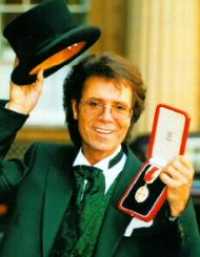Britain's answer to Elvis Presley, Richard (born Harry Webb) dominated the pre-Beatles British pop scene in the late '50s and early '60s. An accomplished singer with a genuine feel for the music, Richard's artistic legacy is nonetheless meager, as he was quickly steered toward a middle-of-the-road pop direction. Several of his late '50s recordings, however, were genuinely exciting Presley-esque rockers -- especially his first hit, "Move It" (1958) -- and gave British teenagers their first taste of genuine homegrown rock & roll talent. Backed by the Shadows -- clean-cut instrumental virtuosos who became legends of their own -- Richard embarked on a truly awesome string of hit singles in Britain, scoring no less than 43 Top 20 hits between 1958 and 1969. One of these, although it was by no means one of the more successful, was an actual Mick Jagger/Keith Richards composition (the ballad "Blue Turns to Grey"). In his homeland, Richard's popularity was diminished only slightly by the rise of the Beatles, but in his prime, he had a much rougher time in the U.S., hitting the Top 40 only three times with "Living Doll" in 1959, "It's All in the Game" in 1963, and "Devil Woman" in 1976). Richard belatedly cracked the U.S. Top Ten in 1976 with "Devil Woman," and racked up a few other hits ("We Don't Talk Anymore," "Dreaming," "A Little in Love") in a mainstream pop/rock style. He remains an institution in Britain, where he is one of the nation's most popular all-around entertainers of all time.
